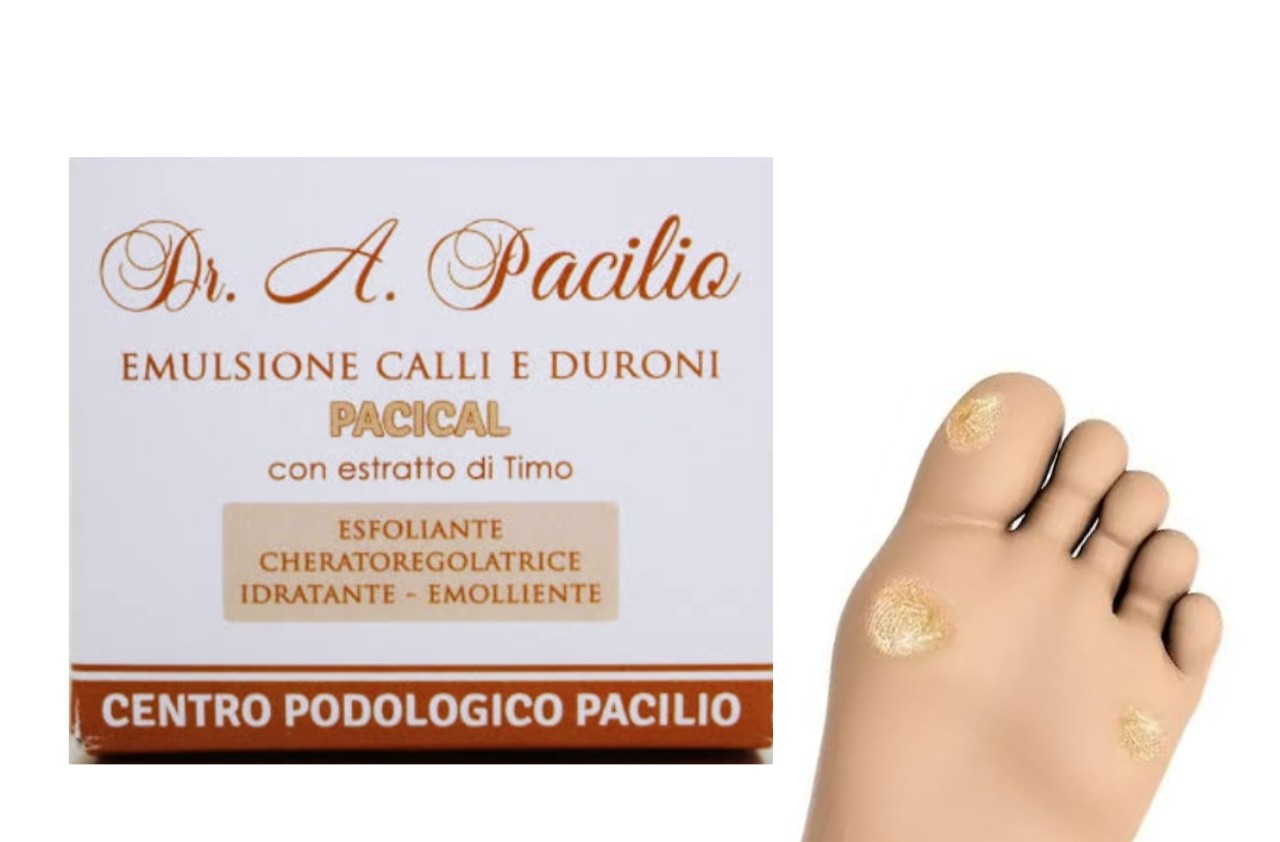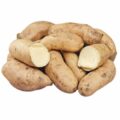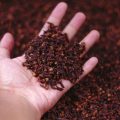Pacical emollient is a kerato-regulating skin product that softens soothes and hydrates areas of the skin that are prone to dryness, hardness, and calluses.
Pacical is very effective at improving skin esthetics, it also contains medicinal extract, vitamins, and essential oils with kerato-regulating, nourishing and protective qualities.
Another unique effect of Pacical is its astringent power on the skin and the freshness and lightness provided by its methol content which helps the skin to regain its hydration, softness, and smoothness.
What is the major ingredient in Pacical?
The major ingredients in Pacical include:
Hydrolyzed wheat protein
This is basically small-sized protein molecules that are easily absorbed by the skin and hair to provide multiple benefits and nutrition. Protein molecules in general are large in size so they are broken down to make them easily absorbed.
Hydrolyzed wheat protein in Pacical formulation to add hydration, improve moisture in the skin and to minimize the appearance of fine lines and wrinkles.
Menthol
Menthol is the substance primarily responsible for the distinctively “minty” fragrance and flavor found in peppermint, eucalyptus, and other mint plants. Menthol’s most unique property is its ability to create a cool feeling on the skin. Much like the capsaicin in hot chili peppers stimulates heat receptors in the skin, Menthol blocks calcium currents in the nerves and triggers cold-sensitive TRPM8 receptors. This sensation is not only refreshing, but therapeutic — as a “counterirritant”, it acts on nerve endings to reduce itching, pain, and other irritations.
As a vasodilator, Menthol improves blood flow to the skin wherever it is applied, bringing life back to dull, tired complexions. Additionally, it reduces the production of inflammatory cytokines and prostaglandins to help improve red and inflamed skin. As an added benefit, Menthol assists skin’s absorption of many other ingredients, boosting the overall efficacy and benefits from skincare products
Menthol promotes skin healing activity by modulating the antioxidant system of the cells and the inflammatory response, in addition to stimulating epithelialization.
Aloe barbadensis
Aloe barbadensis leaf extract comes from the leaves of the aloe vera plant. Components of aloe vera leaf include minerals, polyphenols, and vitamins. This commonly used plant extract offers antioxidant qualities to defend skin from environmental stressors.
Aloe Barbadensis, offers many benefits and is suited for all skin types, especially dry, damaged, broken, sensitive and irritated skin. It offers anti-inflammatory, antimicrobial, antioxidant, humectant, and soothing, anti-itch qualities for the skin.
It’s filled with many natural vitamins and antioxidants such as vitamin B complex, folic acid, vitamin C and 70+ more components. Due to Aloe’s high water content (over 99% water) it is a great way to hydrate, moisturize and rejuvenate the skin with natural nutrients.
Sweet almond oil
Prunus amygdalus dulcis (sweet almond) oil is a non-volatile, non-fragrant oil extracted from the seeds of almonds and used as an emollient to help skin retain moisture.
Sweet Almond Oil richness in Vitamins D and E makes it very nourishing when applied to the skin. Sweet Almond Oil for skin is wonderful at soothing that which is very dry or inflamed, including conditions such as psoriasis or eczema.
Sweet Almond Oil is very skin-friendly and ideal for sensitive, dry skin. Sweet Almond Oil is very suitable for the care of infants and small children. It is characterized by a high content of unsaturated fatty oils, such as oil and linolenic acid.
Salvia officinalis (Sage)
Sage is also called common sage, garden sage, and Salvia officinalis. It belongs to the mint family, alongside other herbs like oregano, rosemary, basil, and thyme. Sage Improves Skin‘s Appearance!
Sage stimulates cell renewal and increases blood circulation. The herb is rich in calcium and vitamin A, which are needed for daily cell regeneration. This renewal process helps minimize and delay the onset of facial wrinkles. Sage improves the appearance of varicose veins and broken capillaries by reducing redness and restricting capillaries.
It assists oily or dry skin by helping to regulate sebum production, which makes it effective in treating conditions such as, seborrhea, dandruff or acne. Research has suggested that the presence of volatile oil in Sage is largely responsible for most of its therapeutic properties, especially its anti-septic, astringent and relaxing actions.
Sage relieves and Improves Annoying Skin Conditions. Sage assists in improving acne, athlete’s foot and chapped skin, and relieving symptoms of eczema and psoriasis. It is soothing to acne-prone skin and a refreshing toner. It even can reduce cellulite. Increased blood circulation helps to eliminate toxins stored by the body, which in turn reduces and prevents the appearance of cellulite.
Calendula Officinalis
Calendula is a marigold plant that has long been used for its skin health benefits, such as helping with wound healing. Calendula petals are rich in naturally occurring compounds called flavonoids. These compounds are said to have anti-inflammatory, anti-thrombogenic, antidiabetic, anticancer, and neuroprotective effects.
n the short term, the nourishing benefits of calendula help to plump the surface of your skin to give you tighter, more supple skin. In the long term, both the anti-inflammatory and antioxidant properties help to protect your skin’s collagen and elastin supply.
Calendula can also decrease the pigment melanin found in skin to help brighten skin and reduce age spots. This may be due to the flavonoids found in calendula. Studies have shown that calendula can increase collagen production.
Thyme (Thymus Vulgaris)
Thymus vulgaris is a species of flowering plant in the mint family Lamiaceae, native to southern Europe from the western Mediterranean to southern Italy. Thyme herb rich in phytonutrients, vitamins and minerals which are essential for overall growth and wellness of the body.
Thyme contains thymol, a very important essential oil that has anti-fungal and antiseptic properties. Thyme also contains phenolic antioxidants like zeaxanthin, lutein, apigenin, naringenin, luteolin, and thymonin.
Due to the natural anti-inflammatory and antibacterial properties of thyme, it serves as an effective natural alternative to cosmetic facial and skin cleaners. A simple tincture of thyme can help clear acne, and relieve its effects on the skin.
Thyme Oil offers benefits of antifungal and antiseptic properties. Thyme Essential Oil provides skin conditions with a clean surface to inhibit surface bacteria. With its circulatory and medicinal properties, Thyme Essential Oil also fortifies the skin. Dry skin can feel relief from itching and tightness.
How to Use Pacical
Appy suffieicent amount of Pacical 1 or 2 times daily, massaging until the product is fully absorbed. Doing this facilitates the removal calluses, blisters and other blemishes that promote the thickening of the skin on the feet.
To treat corns and calluses, dermatologists recommend the following tips:
- Soak the corn or callus in warm water.Do this for about five to 10 minutes or until the skin softens.
- File the corn or callus with a pumice stone.First dip the pumice stone in warm water, and then use the stone to gently file the corn or callus. Use circular or sideways motions to remove dead skin.
- Be careful not to take off too much skin.Doing so could cause bleeding and infection.
- Apply moisturizing lotion or cream to the area daily.Look for a moisturizing lotion or cream with salicylic acid, ammonium lactate, or urea. These ingredients will help gradually soften hard corns and calluses.
- Use padding. To protect calluses from further irritation during activity, cut a piece of moleskin – available at your local drugstore – into two half-moon shapes and place around the callus. To prevent a corn from making contact with your shoe, surround the corn with donut-shaped adhesive pads – also available at drugstores.
- Wear shoes that properly fit.A common cause of corns is a shoe that isn’t the right size and shape for your foot. To get the right fit, shop for shoes at the end of the day, when your feet may be slightly swollen. In addition, ask a clerk to measure your foot, and choose shoes that aren’t too loose or tight.
- Keep your toenails trimmed.Toenails that are too long can force the toes to push up against your shoe, causing a corn to form over time. To remove this pressure, keep your toenails trimmed.
Most corns and calluses gradually go away when the friction or pressure causing them stops. However, if you aren’t sure what is causing your corn or callus, if the hardened skin is very painful, or if you have diabetes.





